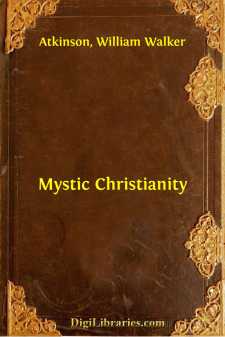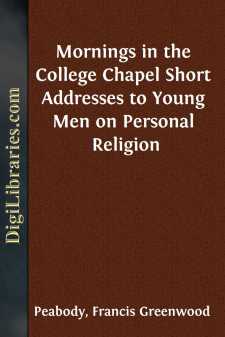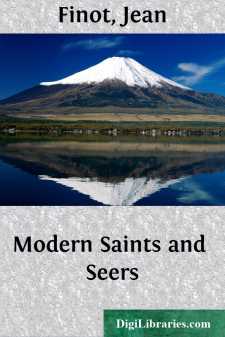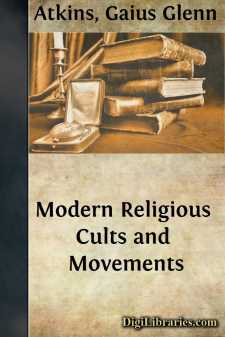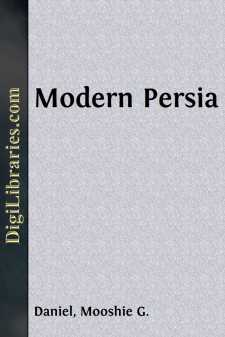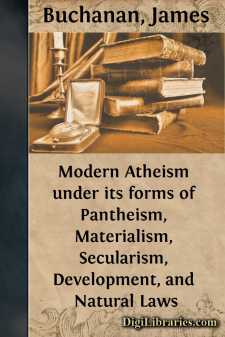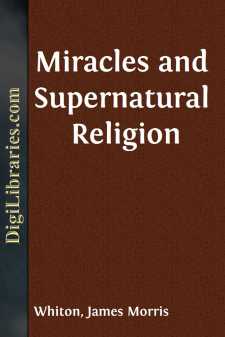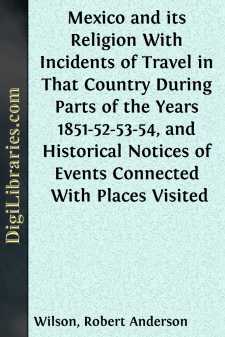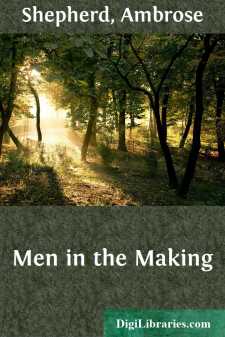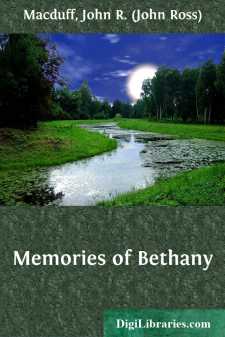Religion
- Agnosticism 2
- Antiquities & Archaeology 21
- Atheism 12
- Biblical Criticism & Interpretation 15
- Biblical Meditations 3
- Biblical Reference 1
- Biblical Studies 11
- Buddhism 8
- Christian Church 52
- Christian Education 5
- Christian Life 26
- Christianity 60
- Cults 2
- Devotional 6
- Eastern 2
- Education 4
- Eschatology 1
- Ethics 3
- General 60
- Gnosticism 1
- Hinduism 15
- History 28
- Holidays 10
- Inspirational 1
- Islam 8
- Judaism 3
- Leadership 1
- Meditations 3
- Monasticism 1
- Mysticism 11
- Philosophy 4
- Prayer 26
- Prayerbooks 5
- Religion & Science 12
- Sermons 54
- Spirituality 53
- Theism 2
- Theology 17
- Theosophy 15
Religion Books
Sort by:
THE FIRST LESSON. THE COMING OF THE MASTER. Strange rumors reached the ears of the people of Jerusalem and the surrounding country. It was reported that a new prophet had appeared in the valley of the lower Jordan, and in the wilderness of Northern Judea, preaching startling doctrines. His teachings resembled those of the prophets of old, and his cry of "Repent! Repent ye! for the Kingdom of Heaven...
more...
THE CLOUD OF WITNESSES Hebrews xii. 1. (FIRST DAY OF COLLEGE TERM) No one can look for the first time into the faces of a congregation like this without thinking, first of all, of the great multitude of other lives whose love and sacrifice are represented here. Almost every single life which enters our chapel is the focus of interest for a whole domestic circle, whose prayers and anxieties, whose hopes...
more...
by:
Jean Finot
"Listen within yourselves, and gaze into the infinity of Space and Time. There resounds the song of the Stars, the voice of Numbers, the harmony of the Spheres."—HERMES TRISMEGISTUS. In these days the phenomenon of religion, which we believed to have receded into the background of human life, is reappearing among us, more vigorous than ever. The four years' desolation into which the...
more...
Introduction The last thirty years, though as dates go this is only an approximation, have witnessed a marked development of religious cults and movements largely outside the lines of historic Catholicism and Protestantism. One of these cults is strongly organized and has for twenty years grown more rapidly in proportion than most of the Christian communions. The influence of others, more loosely...
more...
LIFE OF MOOSHIE G. DANIEL IN PERSIA. The ancestors of M. G. Daniel, a true stock of the Nestorian sect and Syrian nationality came down from Kurdiston mountain in 1740 and settled in Persia at Oroomiah district. The one family now increased to fifty, all live in villages near to each other. G. Daniel with his four brothers settled in a small village four miles east of Oroomiah city. The inhabitants of...
more...
by:
James Buchanan
INTRODUCTION. A Treatise on the Being and Perfections of God, as the Creator and Governor of the world, can scarcely be adapted to the exigencies of modern society, unless it be framed with express reference to the existing forms of unbelief, and the prevailing tendencies both of philosophical thought and of popular opinion. It is quite possible, indeed, to construct a scheme of evidence on this...
more...
INTRODUCTORY n a historical retrospect greater and more revolutionary changes are seen to have occurred during the nineteenth century than in any century preceding. In these changes no department of thought and activity has failed to share, and theological thought has been quite as much affected as scientific or ethical. Especially remarkable is the changed front of Christian theologians toward...
more...
The custom of mingling together historical events with the incidents of travel, of amusement with instruction, is rather a Spanish than American practice; and in adopting it, I must crave the indulgence of those of my readers who read only for instruction, as well as of those who read only for amusement. The evidence that I have adduced to prove that the yellow fever is not an American, but an African...
more...
by:
Ambrose Shepherd
YOUTH AND AFTER "And Terah died in Haran." This bit of prosaic information becomes suggestive by the emphasis of one word: "And Terah died in Haran." This was not his birthplace, but here he ended his days, and that for a reason over which it is worth our while to pause. "And Terah died in Haran." What of that? All people have died somewhere, who have lived and are dead. When we...
more...
John XI. 1.—“Now a certain man was sick, named Lazarus, of Bethany, the town of Mary and her sister Martha. (It was that Mary which anointed the Lord with ointment, and wiped His feet with her hair, whose brother Lazarus was sick.) Therefore his sisters sent unto Him, saying, Lord, behold, he whom Thou lovest is sick. When Jesus heard that, He said, This sickness is not unto death, but for the...
more...


